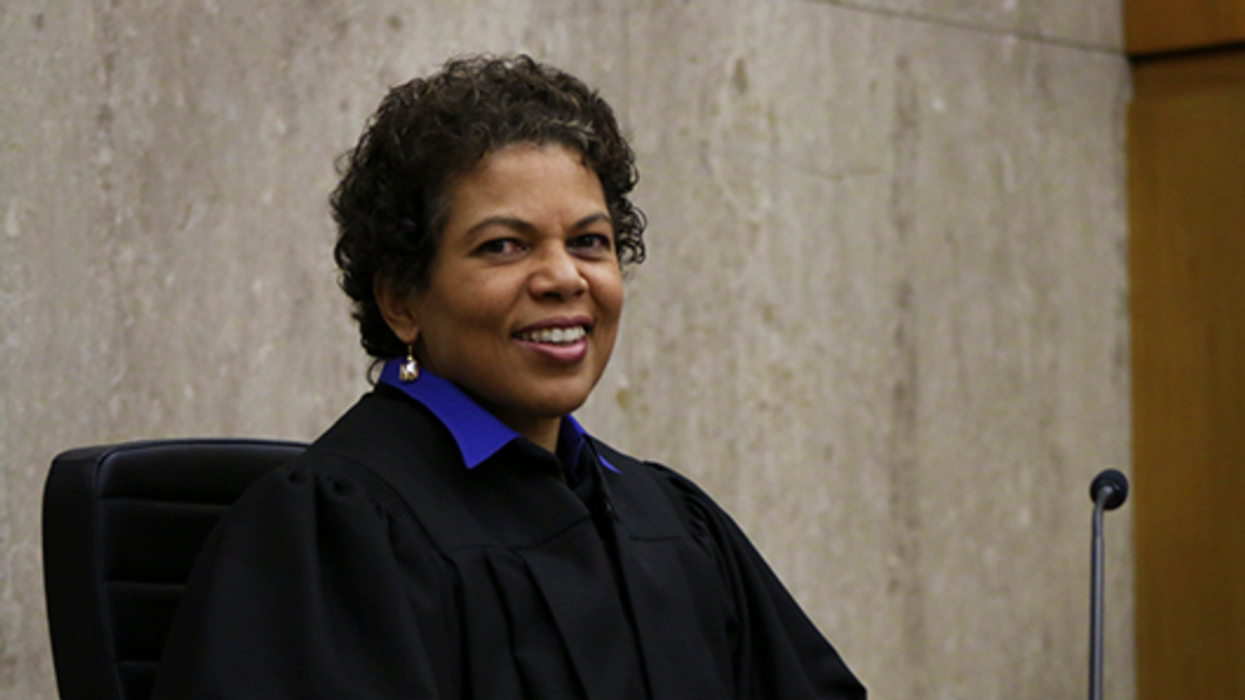
Judge Tanya Chutkan
When Donald Trump was president, he informed us with his know-it-all ignorance that the Constitution gave him "the right to do whatever I want." And he acted as if that despotic canard were true, committing crimes that led to his impeachment not once but twice.
Now Trump insists that even though he is no longer president, the Constitution allows him to conceal the evidence of crimes perpetrated by him and his mangy entourage – specifically, the documents and testimony demanded by the House Select Committee on the January 6 Insurrection. He has "ordered" all of his gang, including former White House strategist and campaign manager Steve Bannon, to defy the committee's subpoenas. His lawyers claim in federal court that "executive privilege" should protect him from coughing up all the information sought by the committee.
That claim deserves to be dismissed outright by Judge Tanya Chutkan, who is hearing the case. What we have learned in recent days about Trump's coup plotting only underlines the importance of the material. His assertion of impunity lacks any substance.
As a legal doctrine, "executive privilege" is meant to shield presidential deliberations and discussions from undue exposure that would hinder the functioning of the presidency. It is a vague standard that infamously was subject to abuse by Richard Nixon as his final and futile line of defense against the Watergate investigation.
In United States v. Nixon, the Supreme Court handed down its historic ruling on July 24, 1974, rejecting Nixon's executive privilege argument, forcing the surrender of his White House tapes and other incriminating materials, and resulting, just over two weeks later, in Nixon's resignation in disgrace. The high court's unanimous decision meant that no person, not even a president, is above the law and that in the absence of a compelling military or diplomatic need for secrecy, especially during an inquiry into high crimes, no president could assert an absolute right to confidentiality.
Flash forward to the perils of the moment, as Congress investigates the violent coup against the certification of Trump's duly elected opponent, Joe Biden. Even as more and more evidence emerges of a desperate scheme against the Constitution, Trump's lawyers pretend that the machinations of the coup plotters should remain exempt from congressional scrutiny. They have derided the January 6 probe as an "invasive Congressional fishing expedition" and warned that upholding the committee subpoenas "would harm the institution of the presidency."
The arguments of Trump's third-tier attorneys are simply nonsense. First, Trump isn't president anymore, so he no longer enjoys whatever privilege may attach to that office. President Biden, the incumbent president who does possess executive privilege, already has rejected Trump's pleas and ordered the release of any relevant documents under the control of the National Archive or other government agencies.
Second, the plotters included a motley assortment of private citizens, including Bannon, the deranged Rudy Giuliani, and his sidekick, the convicted (and Trump pardoned) felon and former New York City police commissioner Bernard Kerik. During the crucial days leading up to January 6, this outfit operated from suites in the capital's plush Willard Hotel, not the White House itself -- and their enormous expenses were paid by the Trump campaign, not the government. Political campaigns are not covered by executive privilege.
Finally, and most importantly, whatever degree of executive privilege may be construed from the Constitution cannot be used to protect presidential crimes. That was the essence of the Supreme Court decision that made Nixon turn over his smoking tapes to a special prosecutor, and it applies with equal force at least to Trump's seditious conspiracy against the democratic process and the peaceful transfer of power.
Judge Chutkan has indicated she may impose minor limitations on the select committee's subpoenas. But she mocked the Trump lawyer's absurd suggestion that Congress has no legitimate purpose in probing the events that led to an insurrectionary attack on the Capitol. Whatever trifling boundaries she may impose on the select committee's subpoenas won't matter much, so long as she acts swiftly.
In due course this matter will land on the docket of the Supreme Court, where the justices—three appointed by Trump--will have the opportunity to prove that they are authentically nonpartisan and unbiased, as Amy Coney Barrett and Samuel Alito have recently tried to persuade us. If they fail, history will scorch their reputations beyond repair.
- What Merrick Garland Must Do Now - National Memo ›
- January 6 Committee Threatens Criminal Contempt Against Trump ... ›
- Congress Ready To Issue Criminal Referrals On Trumpsters Who ... ›
- Bipartisan List Of Former Lawmakers Urges Rejection Of Trump's ... ›
- Trump Enraged By Rejection Of 'Executive Privilege' Claims In Jan ... ›
- Refusing To Testify About January 6, Jeffrey Clark Risks Prosecution - National Memo ›
- Judge Rejects Trump Bid To Withhold January 6 Records From Congress - National Memo ›
- A Year Later, Timeline Shows Trump Always Knew His Fraud Claim Is A 'Big Lie' - National Memo ›
- Danziger Draws - National Memo ›
- Appeals Panel Tosses Trump Bid To Shield Documents; Supreme Court Next - National Memo ›
- Supreme Court Rejects Trump Plea To Withhold Capitol Attack Records - National Memo ›
- Ivanka's Non-Response To House Panel Says She Opposed January 6 Violence - National Memo ›
- Danziger Draws - National Memo ›








